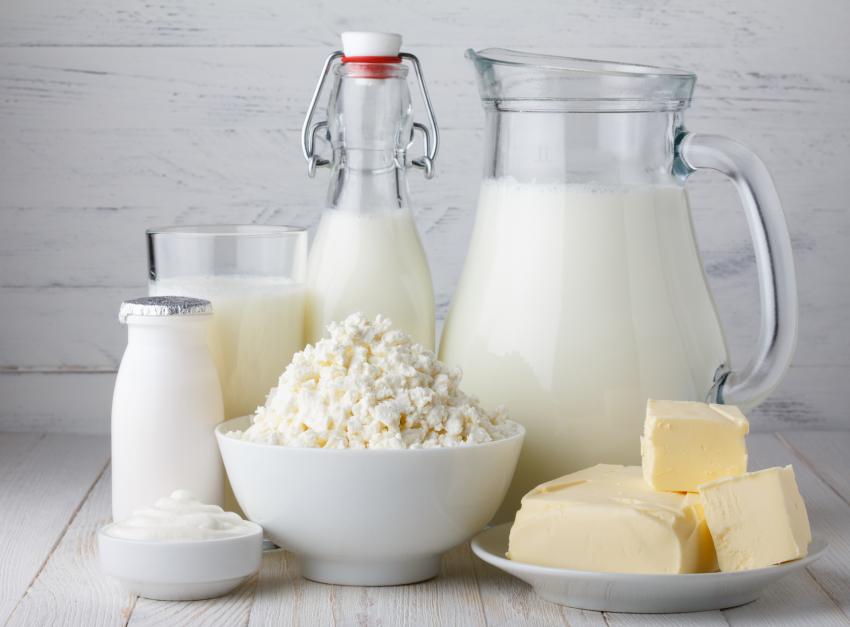
- Ali
Have you ever considered cutting down dairy or going totally dairy free?
I'm not entirely dairy free but I've pretty much cut it out of my diet with the exception of the occasional piece of cheese. I know cheese is my downfall and after I've indulged I often wake up the next morning with a sore throat and feeling all mucus’ey’.
Often, going dairy free starts as an infant milk allergy but there are many different reasons to explore the benefits of a dairy-free diet.
My 30 days to healthy living programme advocates you go dairy free, as the whole programme is about cutting out known allergens and dairy definitely falls into this camp. For many cutting known allergens out of their diet including dairy, gluten, wheat, refined sugar as well as processed foods, artificial colours, flavours, preservatives, caffeine and alcohol seems like I’ve pulled the rug from under them. I work with the Health and Wellness brand Arbonne to ensure I well and truly support you with a safety blanket that becomes a new rug on your journey to healthy living. If after 30 days you add the known allergens back into your diet with no adverse side effects great, but if not consider becoming dairy free long term. Here are some of the benefits.
The benefits of dairy-Free:
Dairy Free for Clear Skin
Millions of people have experienced clearer skin and a reduction in acne after going dairy-free. It’s true pizza face isn’t a myth. The exact link to clear skin and vanishing acne is unknown, but some physicians put it down to a milk allergy or sensitivity causing inflammation. It’s also been suggested that the hormones in milk are aggravators and many dermatologists are now recommending the dairy-free diet as a first step in treating acne. If you struggle from acne-prone skin then it’s worth limiting or cutting out dairy to see how it affects your body.
Preventing Milk Allergy and Sensitivity Reactions
Milk allergy is real. Dairy repeatedly ranks high in the food allergen list. The severity of milk allergy ranges from life-threatening (anaphylaxis) to relatively mild (hives), and a compromised immune system. Milk allergy can appear at any time in life though ‘traditional’ dairy allergy has a higher prevalence in infants and young children.
Dairy Free and Healthy Digestion
Lactose intolerance spurs a myriad of digestive symptoms in millions of people, including stomach pain, cramps, bloating, flatulence, diarrhoea, and nausea. It has been estimated that 70% of the world’s population has some degree of lactose intolerance. After weaning, humans no longer need the ability to digest their mother’s milk, so they naturally begin losing lactase, the enzyme that helps to digest lactose in dairy milk. Dairy has also been labelled as a key trigger in IBS (irritable bowel syndrome) and various other digestive conditions.
For Baby
Infant milk allergy is a real concern for millions of parents with many paediatricians now recommending that breastfeeding mums of milk-allergic babies go completely dairy free themselves. It is speculated that milk protein consumed by the mother passes to her baby via her own milk supply. I know of lots of mums who opt to remain milk-free even after breastfeeding, due to the dairy-free benefits they enjoy!
Helping or Resolving Medical Mysteries
Whether backed by research or thousands of personal success stories, many people are squashing daily headaches, migraines, rashes, stuffy sinuses, chronic infections, arthritis pain and even narcolepsy when they cut out all dairy foods. Still others are finding a notable reduction in behavioural issues with conditions such as ADHD and Autism when they eliminate dairy, and sometimes gluten too.
Weight Loss
For those who are milk allergic and have had issues with low body weight, a milk-free diet can actually help them to absorb nutrients and potentially gain healthy weight. I’d always suggest adding a probiotic into the diet too as this balancing of the bacteria in the gut can really aid nutrition absorption. I take an Arbonne Digestion Plus sachet every day 30 days (£41 or £32.80 for preferred clients – feel free to message me for more info about becoming a preferred client) as it gives me a pre and probiotic and enzyme which support overall digestive health. I also take a probiotic in my Power Packs for women (for 30 days £78/ PC £62.40). These multi-tasking multivitamins are a must. They are a multi-mineral, probiotic and calcium blend which I swear by. For the rest of the population where low body weight isn’t a problem weight loss is a real possibility with the dairy-free transition. We’re not entirely sure why but obesity and cheese have definitely been linked in studies.
Vegan Living and the Environment
Vegans forgo all animal products, which includes dairy. In doing so they make a stance against animal cruelty, shun the extensive use of antibiotics and hormones in our food supply, and lessen their environmental impact. Milk production has been shown to have a substantial footprint on air quality (greenhouse gas and nitrogen emissions), water quality (run-off of fertilizers, pesticides, antibiotics, hormones, and pathogens), and the soil and surrounding ecosystems (land use, cropping practices, fertilizers, and pesticides). This is less true in the UK where mass housing of cows is not a common practice but in the US this practice has seen cows virtually eliminated from outdoor living in some states. If you’re opting for dairy-free milk alternatives choose wisely or you may be adding to the carbon footprint through transportation.
Reducing Exposure to Added Antibiotics and Hormones
Antibiotics are sometimes given in large quantities to dairy cows to help prevent infection, but concern has been raised over the consumption of these antibiotics through the milk supply and antibiotic resistance. Dairy free alternatives to cow’s milk do not contain added antibiotics or hormones since they are plant-based!
Will I Lose Bone Density?
Up until age 30, your body builds bone at a faster pace than it breaks it down. After 30, your body chews up bone faster than it's being built. So, what’s the best way to fortify your frame? Calcium. Dairy is one of the best sources of the stuff because your body absorbs calcium from dairy.
That said, if you're committed to removing milk and dairy from your diet, switch to other skeleton-strengthening calcium sources such as leafy greens (collard greens, kale, spinach, broccoli, broccoli rabe), bok choi, sardines, almonds, salmon, sesame seeds, chia, tofu, soy milk, or orange juice. Also, take a daily calcium plus vitamin D supplement and be sure to take it with food because the acid in your stomach aids absorption. I take the Arbonne Calcium Plus tablets (30 days £31/PC £24.80). It’s a blend of calcium, magnesium and Vitamin D to aid absorption.
If you’re interested in knowing more about how I manage my healthy lifestyle please message me or to get a special 20% discount on all Arbonne products join as a Preferred Client. Contact me if you’d like to know more!








